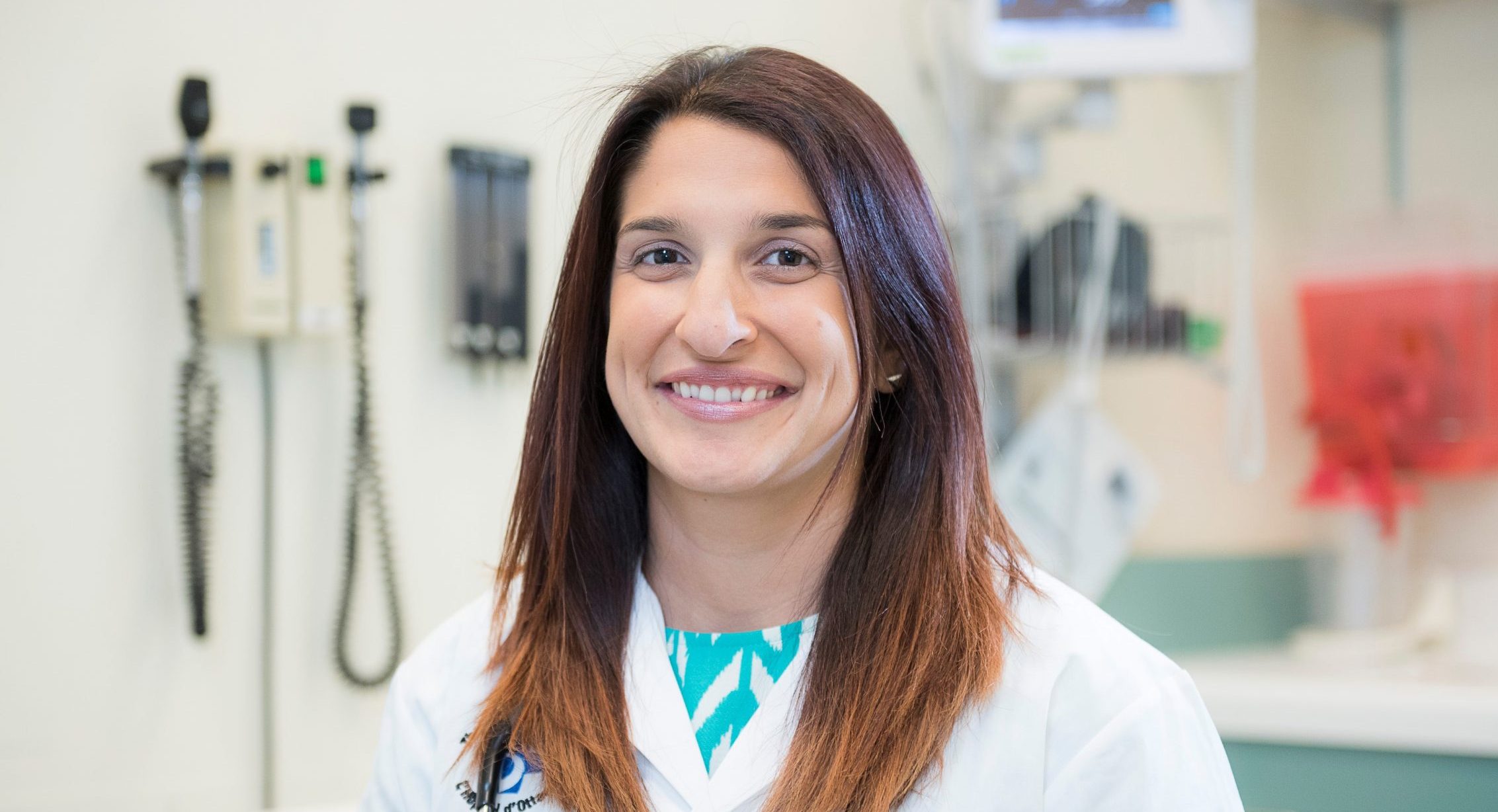A nationwide study partially funded by OICR is giving Canadians with cancer access to groundbreaking immunotherapy.
CAR-T cell therapy has given hope to people with serious blood cancers who might otherwise be out of options. Early trials for the groundbreaking immunotherapy have shown a lot of promise, with some patients still in remission a full decade after treatment.
Yet until recently, Canadians with cancer might have to travel internationally and spend hundreds of thousands of dollars for a chance at this potentially life-saving therapy.
Now, the Canadian Immunotherapies in Cancer (CLIC) program is helping change that by developing Canada’s first platform for manufacturing CAR-T cells and offering therapies to eligible Canadians through an innovative clinical trial.
The first CLIC trial started in 2019 and has now recruited more than half of a potential 60 participants. Though results have not yet been published, study lead Dr. Natasha Kekre says the made-in-Canada CAR-T cell therapy has proven to be safe and is already saving lives.
“There are trial participants who I know 100 per cent would not be alive right now without this therapy,” says Dr. Kekre, a hematologist and scientist at The Ottawa Hospital. “These success stories are the best part of our work.”
CAR-T cell therapy involves collecting immune system T cells and genetically reprogramming them to produce chimeric antigen receptors (CARs), which help them to find and attack cancers like leukemia and lymphoma that would otherwise elude the immune system.
The therapy is complicated to produce and administer, and it has taken a nationwide collaboration to get this Canada-first platform off the ground. Funding was provided by OICR, BioCanRx, BC Cancer and The Ottawa Hospital Foundation. CAR-T cells for the study are jointly manufactured at The Ottawa Hospital’s Biotherapeutics Manufacturing Centre and at BC Cancer’s Conconi Family Immunotherapy Lab, with therapies also administered at both these sites. But capacity is growing, and infrastructure is being developed to make to CAR-T cells in Toronto and Winnipeg.
Dr. Kekre says the sophisticated platform the CLIC team built should make manufacturing easy like a “bread maker” — you add the ingredients, and the machine makes CAR-T cells. “The goal is point-of-care manufacturing,” she says. “We want to be able to drop these machines in different cancer centres across the country.”
The success of the CLIC program is also the result of strong patient partnerships. Because CAR-T cell therapy can be toxic and difficult on participants who may already be very ill, the study team knew the trial had to be shaped by the voice of patients.
Patient partners were involved from the start, identifying key outcomes, helping with recruitment and co-producing trial documents like information sheets and consent forms. “As patient partners, we contributed key input to help improve patient outcomes and experiences, and helped to shape the methods used by researchers to achieve this,” says Terry Hawrysh, a patient partner for the CLIC program and member of OICR’s Patient and Family Advisory Council. “It was a truly meaningful engagement, and a very rewarding experience to participate in a ‘made in Canada’ effort to develop, translate and deliver CAR-T cell therapy.”
Dr. Kekre expects the first CLIC trial to finish later in the year, and she hopes to share early results within the next few months. Work is already underway on a second CLIC trial which will investigate a different type of CAR-T cells. “Now we want to build the next generation of CAR-T cell therapies for Canadians — first-in-human designs that may be more effective or treat other types of cancers,” Dr. Kekre says.
With plenty of work ahead, Dr. Kekre says she is motivated by the people the trial has already helped. “We’re saving lives in an early phase clinical trial,” she says. “That’s special, and it’s all I need to keep me going.”
***
Find out more about the CLIC program at ClinicalTrials.gov. Patients who think they might be eligible should speak to their hematologist.
Photo of Dr. Natasha Kekre provided by The Ottawa Hospital.

